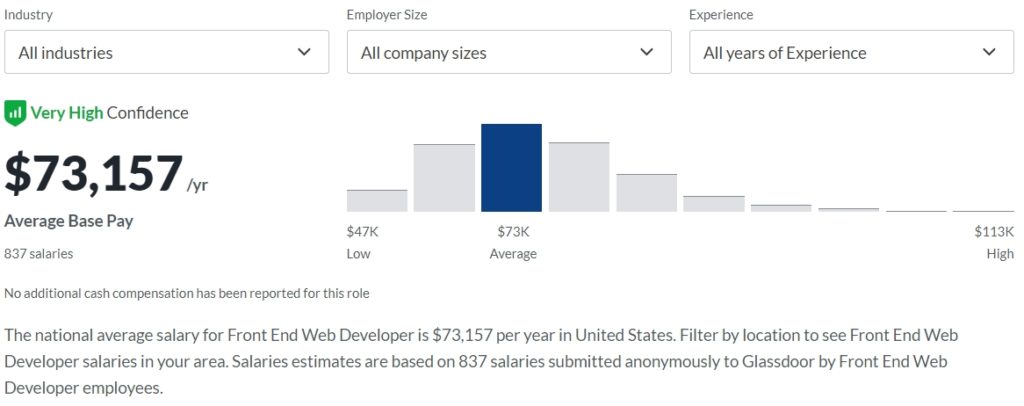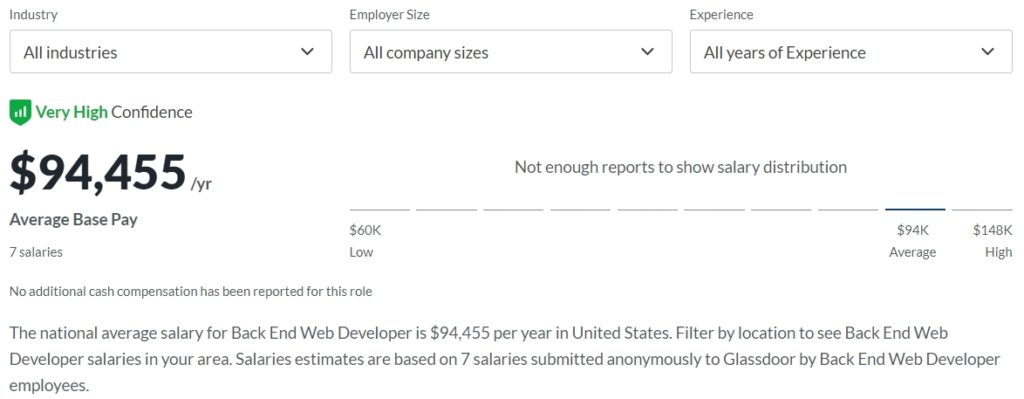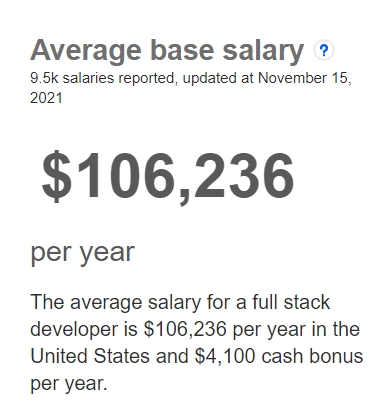Why you should hire a web developer?
When WordPress is not a solution
Many people have heard about things like HTML, PHP, or JavaScript. While it is often enough to know JavaScript to start creating your websites, most websites rely on WordPress, Joomla, or Wix tools.

At the same time, available online website creation tools cannot provide you with all the functionality you might need. They are more like Lego: you can do whatever you want, but only using pre-made details. Of course, you can expand its functionality using plugins, but you will need to learn programming languages for something more custom.
And if you have zero skills, you’ll still need to hire a web developer to install and adjust WordPress.
If you’re riddling yourself with the dilemma, “Hire a web developer or do it yourself,” don’t overthink it and hire someone. A pro can do any task you have at hand faster and more efficiently than you (given that you are a non-tech person).
The real question is, “How to find a good web developer?”
Don’t worry, this guide will teach you.
Hire an experienced developer within 2 weeks.
Pre-vetted. With proven experience and reasonable rate expectations.
What is the actual web development?
Simply put, web development implies the custom creation of solutions for the web instead of assembling them with the help of pre-designed components. In other words, a web developer is a person designing and crafting Lego details which WordPress is made of.
Here is a short list of reasons to hire a web developer instead of relying on website creation tools. You need one when you:
- Need someone to write code from scratch (for example, if you want your website to have unique features that WordPress has no plugins for);
- Need a person to install, adjust, and maintain WordPress;
- Want new, unique themes and plugins for WordPress;
- Need to create and manage databases for your specific needs;
- Want to customize a website using CSS;
- Have zero coding skills and have no time to learn even the basics;
- Want a search engine optimized website;
- Need to fix website bugs and improve its overall optimization.
Hiring Web Developers 101: choosing the right professional

After realizing that a web developer is a valuable asset, you should
Distinguish between web designers and web developers
For some reason, people still tend to confuse these two professions. They rush and hire a PHP web developer to draw buttons and menus and then wonder why things don’t look stylish and user-friendly. Let’s not laugh and point fingers but figure out what’s confusing in distinguishing between web design and web development.
It is true that some skills in these spheres often overlap. However, web designers and web developers perform different tasks.
Web designers
Web designers usually perform the following duties:
- Transforming customers’ requirements into design concepts;
- Deciding on the color schemes, fonts, and graphic content of a website;
- Designing website layouts;
- Designing UI/UX;
- Ensuring the site is well-optimized for conversions.
Web developers
Web developers are professionals who major in creating software solutions for the Web. They fall into front-end and back-end developers. Each of these categories has its responsibilities, work specifics, and required skills.
Front-end
What do front-end developers do?
Front-end development is often called “client-side development.” Front-end developers ensure users can review and interact with the content and data presented on the website. To convert data and code into an easy-to-navigate user interface, front-end developers use a variety of tools such as hypertext markup language (HTML) or cascading style sheets (CSS).
Skills they must possess:
- HTML, CSS, and JavaScript knowledge;
- Knowing at least several JavaScript frameworks such as AngularJS, ReactJS, and Vue.js);
- Knowing what REST stands for and how to utilize services and APIs based on it;
- Knowing how to work with CMS such as WordPress;
- Being experienced in working with e-commerce platforms;
- Being able to optimize websites for mobile platforms.
This list is not exhaustive but provides a decent grasp of what front-end web developers do.
Back-end
What back-end developers do
Back-end web developers design software logic and architecture and are generally responsible for a website being a part of the Internet. The back-end is the backbone of front-end web development. You can think of it in terms of painting: the front-end is what’s painted (a picture’s plot, some visual effects, and whatnot), and the back-end is how it is painted (oil paints, pigments, canvases, and brushes).
Skills they must possess:
- Strong knowledge of any backend-related language and frameworks (PHP, Python, Ruby, Node.js, C#, Java, Go, etc.);
- Adjusting and maintaining web servers (this is DevOps mostly, but could be useful for a back-end developer as well);
- Developing server-side logic;
- Creating RESTful APIs and/or integrating third-party APIs;
- Designing, setting up and maintaining CMS.
Full-stack
What full-stack developers do
A full-stack developer is a person possessing both front-end and back-end skills and knowledge and can develop a completed product. Full-stack developers are valuable because they can fill in the gap between the front-end and the back-end, addressing any issues occurring during the development process.
Skills they must possess:
- Development and design of web API;
- Working with databases (MySQL, Redis, Oracle, etc.);
- Working with front-end and back-end frameworks;
- Security measures, troubleshooting, bug fixing;
- Knowledge of business logic and infrastructure (Amazon Web Services, Sphinx).
Whom to choose when?

Tasks to hire front-end developers for:
- Convert a web designer’s ideas into a working website;
- Optimize a website for mobile platforms;
- Troubleshoot and fix UI bugs;
- Optimize applications.
Tasks to hire back-end developers for:
- Create and maintain databases (MySQL, PostgreSQL, MongoDB, etc.);
- Use backend frameworks such as Express.js or Django to create software for servers;
- Integrate web API;
- Work with various web server technologies (Apache, IIS, Nginx, GWS).
Tasks to hire full-stack developers for
Instead of exploiting a freshly hired full stack developer to the fullest, you might consider using them either as front-end specialists with solid knowledge of server-side technologies or as back-end devs knowledgeable about the front end. This is because:
- A narrow-profile pro can be more knowledgeable about a particular sphere or coding language than a full-stack developer. It means that you should not expect them to be the Jack of all trades and do all the work single-handedly.
- You do not want to keep your full-stack developers too overloaded all the time. Otherwise, they will not have time (and energy) to develop their professional skills.
Either way, typical tasks for them include:
- Designing a website’s or application’s architecture;
- Converting web design solutions into front-end code;
- Databases and system administration;
- Maintaining the code’s integrity;
- Ensuring data protection and security.
How much will it cost you?
So, how much does it cost to hire a web developer? Here is our brief “Web developer for Hire Price List.”
Front-end
According to Glassdoor, the average annual salary for an in-house front-end web developer in the United States equals approximately $73,157.

Back-end
Back-end in-house web developers in the United States earn on average $94,455 per year.

Full-stack
Full-stack web developers in the United States working in-house enjoy average annual salaries equaling $106,236.

As for the freelancing full-stack developers’ average hourly rates — they equal $55.
How to hire a web developer: recruiting routine breakdown
Forms of work
In-house
It is probably the most traditional way of working. It implies that a developer (or a whole team) is officially employed by a company and works in the office. In-house development is usually associated with the high quality of the final product and security. Unfortunately, sustaining (or hiring, if you are a client) a team of in-house developers can be expensive.
Remote
A remote web developer is officially employed by a company and enjoys all of the benefits deriving from it but does not work in the office. He or she can work from anywhere. Companies resort to remote employment when hiring a specialist from abroad is cheaper or when a highly valued developer has no opportunity to work in the office, etc.
Freelance
People usually hire freelancers for project-based work. Once a job is complete, you pay a freelancer, and they move on to the next order. Hiring a freelance web developer is an excellent option for smaller companies, for startups that are short on budget, or when it makes little sense to hire a full-time developer (e.g., if you only need a developer for occasional bug fixing).
Additionally, freelancers are an easy way to find talent for the highest-paying software engineering jobs without committing to long-term employment contracts.
You might want to hire a freelance remote developer for many reasons:
- They are more affordable than in-house pros;
- Direct communication boosts work efficiency;
- They are easy to find;
- There are millions of freelance developers out there possessing whatever skills you might need;
- If hired at freelance platforms for vetted specialists, working with freelancers is as secure and reliable as with in-house developers;
- Your business will benefit greatly (for more information on what companies should consider hiring freelance devs in the first turn, check out this article).
Recruiting process
Whether you are searching for an in-house, remote, or freelance developer, you need to know how to hire a web developer properly: a procedure to ensure the specialist you hire is competent and easy to work with. Here is the algorithm we at Lemon.io have developed to separate the grain from the chaff (sorry, our content writer loves metaphors – editor’s note).
It consists of three steps:
- Overall check;
- Soft skills and language proficiency testing;
- Tech interview.
Each of these steps will help you ensure a web developer can do their job effectively. Let’s take a closer look at what you should do in each stage.
Overall check
- Review and analyze their portfolio (for developers, it’s code samples they post on resources such as GitHub) and resume. A little bit of spying on social media won’t harm either.
- If possible, contact their previous employers or customers, and interview them about their experience with the candidate.
- Analyze their manner of written speech: abrupt monosyllabic answers to your questions, as well as polite and elaborate replies, can tell a lot about your candidate.
Proficiency testing
- On Stack Overflow and GitHub, pay attention to the feedback and comments other developers leave on your candidate’s code.
- A good idea would be to ask or hire programmers you know to evaluate the code written by the candidate. In a pinch, use services such as W3Techs.
- Design and hand a test task. We recommend you to pay for the test assignment so that you can give the candidate a real job to work on.
Personal interview
- If you are hiring a freelancer, you can interview them via Skype, Slack, Google Hangouts, etc. We recommend arranging a personal face-to-face meeting if you are hiring a web developer for in-house work.
- Pay attention to how the candidate talks, behaves, and looks. They can be an unmatched expert, but working with them may be difficult if they are socially anxious, narcissistic, or just weird.
- A high level of spoken and English language is a must. English is the language of international professional communication, so you do not want your candidate to be unable to speak it.
After you gather all the data, take some time to analyze the information carefully. Regardless of your decision, do not hesitate to inform the candidate about it, even if you reject them.
For more tips on hiring web developers, check out our complete guide on hiring the best freelance developer. And if you’re interesting in finding a software developer, we have a hiring guide for that, too.

Where to find a web developer for hire?
The main question now is where to find a web developer who would be competent, responsible, and skilled.
Web developers for hire can usually dwell on the websites listed below.
Freelance marketplaces
One of the common features of most freelance marketplaces is that freelancers bid for jobs. A customer places their order, and then freelancers apply to it, each offering their price. A client then chooses one or several specialists with the most suitable price and expertise.
The problem with such websites is that it may be challenging to find a competent web developer (if you are a customer) or to withstand competition (if you are an independent contractor). Often, when a student or a wannabe freelancer types in Google, “where to find entry-level web developer jobs,” their first search results are online marketplaces. Which, sometimes, charge rather high fees for their services.
Representatives: Upwork, Freelancer, Guru.
Job boards
Job boards may look like a somewhat old-school way of searching for job candidates, but it works, and it is efficient. Instead of guessing where to find a web developer, you might want to go straight to industry-based job boards: websites accommodating specialists majoring in a narrow field (web development, in our case). All you need to do is to place your position/open vacancy description and wait for the contractors to apply. If you need a pro for a specific task (like, hiring a Magento web developer to set up and adjust an e-commerce platform for you), job boards can be a great option.
Many pros consider job boards the best place to find web developer jobs.
Representatives: GitHub, Krop, Stack Overflow, Indeed.
Freelance platforms for vetted specialists
When you want to hire a web developer online, a platform for vetted freelancers is the place to go in the first place. Unlike freelance marketplaces, such platforms make freelancers undergo a series of tests and pre-screening procedures aimed at evaluating their professional qualities and ensuring their competence. Vetted platforms are a secret place where no beginner googling “where to find junior web developer jobs” will ever get to.
As a result, a client always gets to work only with skilled and easy-going specialists. We say “gets to work” because clients cannot choose whom they want to hire on some platforms. Instead, the service requires customers to provide detailed information on the project and select a suitable freelancer based on it.
Representatives: Codementor, Lemon.io.
Conclusion
The least risky option for you to hire a dedicated web developer is to use freelance platforms for vetted pros. In this case, Lemon.io can be a good place for you to start looking at.
You can also use job boards, which accommodate thousands of seasoned and skilled devs looking for customers. But we’d still suggest that you use vetted platforms instead. It’s just faster and safer, and there’s always someone to control and manage the work process so that you can keep your hands free.










